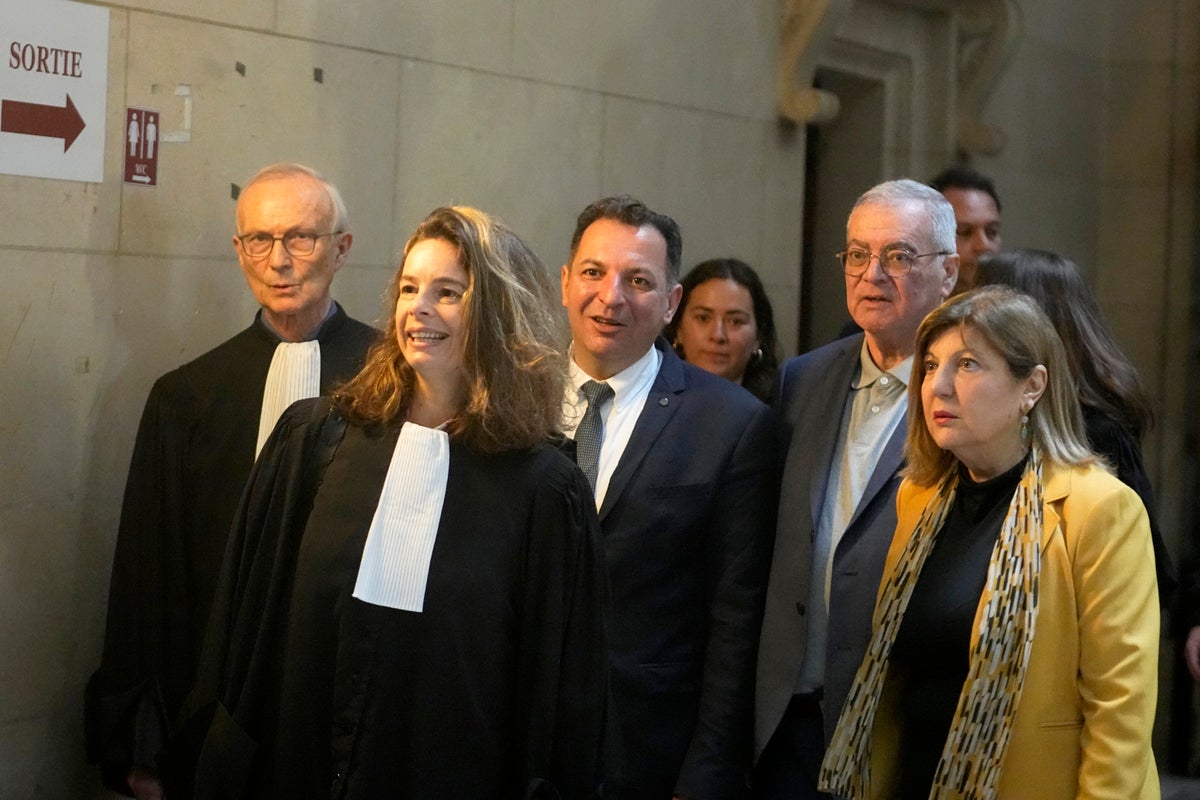
The landmark trial of three former Syrian intelligence officials began Tuesday at a Paris court for the alleged torture and killing of a French-Syrian father and son who were arrested over a decade ago, during the height of Arab Spring-inspired anti-government protests.
International warrants have been issued for the defendants, being tried in absentia.
The father Mazen Dabbagh and his son, Patrick, were arrested in the Syrian capital, Damascus, in 2013, following a crackdown on demonstrations that later turned into a brutal civil war, now in its 14th year. The probe into their disappearance started in 2015 when Obeida Dabbagh, Mazen’s brother, testified to investigators already examining war crimes in Syria.
The four-day hearings come as Syria's President Bashar Assad has started to shed his longtime status as a pariah that stemmed from the violence unleashed on his opponents. Human rights groups involved in the case hope it will refocus attention on alleged atrocities.
About 50 activists gathered near the Paris Criminal Court, chanting for “freedom” and in support of the disappeared and the dead.
If the three — Ali Mamlouk, former head of the National Security Bureau, Jamil Hassan, former Air Force intelligence director, and Abdel Salam Mahmoud, former head of investigations for the service in Damascus — are convicted, they could be sentenced to life in prison in France.
The first hearing on Tuesday invited several, including Ziad Majed, a Franco-Lebanese academic specializing in Syria, for “context testimonies" in front of three judges.
Majed shed light on the history of the Assad family’s rule since the early 1970s. The three defendants are part of the Al-Assad system. I know their names; they are also famous in Lebanon,” he said, meaning they are well-known for being part of the Assad government.
After his two-hour testimony, Majed joined the demonstrators, calling for justice for the disappeared.
Arwad, a young Syrian girl who has lived in France since 2018, was not at the hearing but joined the rally. “We are refugees, we support freedom,” she said.
The Dabbagh family lawyer, Clemence Bectarte, from the International Federation for Human Rights, told The Associated Press she had high hopes for the trial.
“This trial represents immense hope for all Syrian victims who cannot attain justice. Impunity continues to reign in Syria, so this trial aims to bring justice to the family and echo the stories of hundreds of thousands of Syrian victims,” Bectarte said.
The brother, Obeida, is set to testify on Thursday, the third day of the trial. “I hope the responsible parties will be condemned. This could set a precedent for holding Assad accountable,” he told the AP. “Hundreds of thousands of Syrians have died. Even today, some live in fear and terror.”
Brigitte Herremans, a senior researcher at the Human Rights Centre of Ghent University, emphasized the trial’s significance despite the defendants' absence. “It’s very important that perpetrators from the regime side are held accountable, even if it’s mainly symbolic. It means a lot for the fight against impunity,” Herremans said.
The verdict is expected on Friday.







